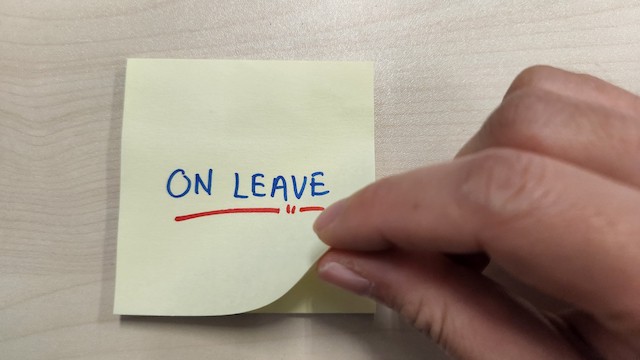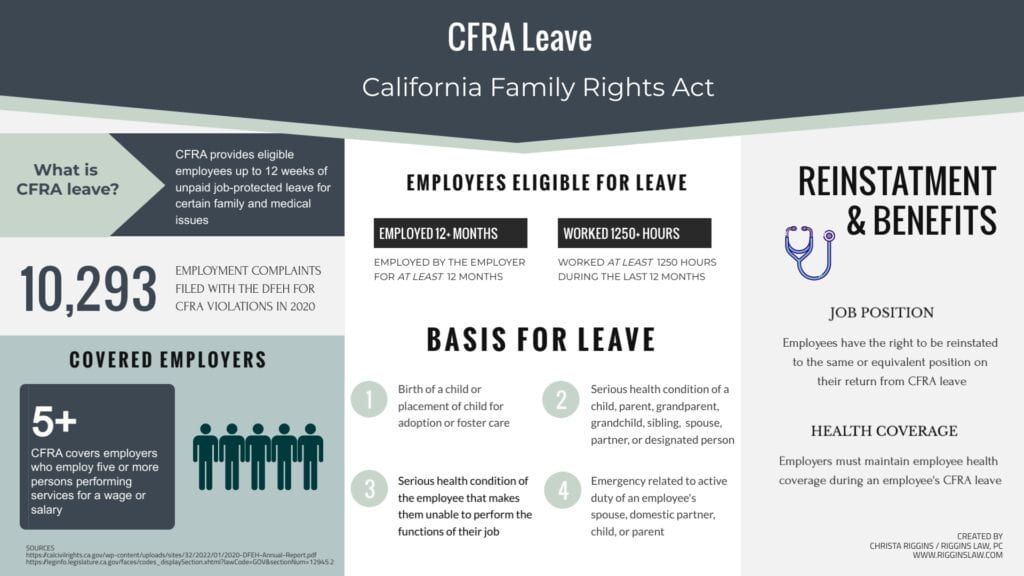
A question that sometimes comes up in my work is whether an employer can ask an employee to work during their FMLA leave. And, more specifically, what communications and requests by an employer are appropriate during a leave of absence. This article answers these questions and provides specific examples of acceptable and unacceptable requests by employers.
FMLA Leave and Employer Interference
The Family Medical Leave Act (“FMLA”) entitles eligible employees to 12 weeks of unpaid job-protected leave for certain personal and family medical reasons. To ensure employers respect these rights, the FMLA makes it “unlawful for any employer to interfere with, restrain, or deny the exercise of or the attempt to exercise any right” under the FMLA.
“Interference” by an employer includes discouraging an employee from using FMLA leave, discharging an employee for taking FMLA leave, or requiring an employee to work during their leave of absence. Regarding requests to work during leave, questions have been raised about what constitutes “work” during an FMLA leave. For instance, can you be required to answer emails, send documents to your employer, or complete job-related tasks?
In answering these questions, the courts have generally held that contact limited to questions about an employee’s leave status, the location of documents, or requests that paperwork or equipment be returned does not interfere with an employee’s leave rights. However, asking or requiring an employee to complete job duties or produce work-product can constitute interference.
Communications About Leave Status and Requests for Documents or Things
The courts have generally held that an employer may make “reasonable requests” of an employee on FMLA leave without interfering with their leave. For instance, an employer may require an employee on FMLA leave to report periodically on their “status and intent to return to work.”
An employer may also request copies of documents necessary to perform an employee’s job during their leave of absence. For example, in Sabourin v. University of Utah, the employer contacted an employee repeatedly during his FMLA leave and requested that he return documents necessary for the employer to respond to an auditor. The employee refused to return the documents stating he was not required to be working while on FMLA leave. In response, the employer terminated his employment, claiming, in part, that his refusal to return the documents amounted to insubordination. In reviewing the evidence, the Court of Appeal stated:
[W]e see no improper imposition of work duties on him during his FMLA leave. The requests by [the employer] were for items necessary…to perform [the employee’s] work while he was absent. There will undoubtedly be occasions when an employee on FMLA leave cannot respond to any request by the employer, or the request may simply be unreasonably burdensome. But this was not such an occasion…the [employer’s] request for materials…was not an impermissible demand for work during FMLA leave. It was a request for a modest, unburdensome effort to enable [the employee’s] work to be performed while he was on leave.
Other courts have similarly held that a request for keys and passwords did not constitute interference and that emails requesting paperwork were “de minimis” and “did not materially interfere with [an employee’s] leave.” As one court explained, “there is no right in the FMLA to be ‘left alone’ or be completely relieved from responding to an employer’s discrete inquiries.”
Requests That You Perform Job-Related Tasks or Produce Work Product
On the other hand, asking or requiring an employee to perform job-related tasks or finish work while on leave can constitute interference.
For example, the following conduct was found sufficient to establish an interference claim: requesting that an employee update case files, complete projects, and personally deliver completed work to the office during their leave (Smith-Schrenk v. Genon Energy Servs., L.L.C.); requesting that a sales representative employee on leave provide customer lists, information regarding pending sales, and requiring the employee to meet in person (Arban v. W. Pub. Corp); making numerous phone calls to an employee on leave regarding work performance and work she needed to complete, including evaluations she was told needed to be done immediately (Franks v. Indian Rivers Mental Health Ctr.).
As one court explained, “[t]he ability to take FMLA leave is not conditioned upon the willingness of the employee to remain on call to the employer” and “of the many prerequisites to FMLA leave, the convenience of the employer is not one.”
Voluntary Work Is Permitted
The FMLA regulations permit employees on medical leave to voluntarily accept work. The key here is that the work must be performed voluntarily. In other words, acceptance must be uncoerced and not a condition of employment. If you are being asked to perform unwanted work during your FMLA leave, it is important that you speak up. At least one court has held that an employee who never expressed reservations about working while on FMLA leave could not establish an interference claim.
Conclusion
If you are on FMLA leave, you should keep your employer informed of your leave status and respond to requests regarding the location of documents or other materials necessary for them to perform your job during your leave. However, if your employer is requesting that you perform specific job duties (complete evaluations, reports, update files or charts, etc.), you should inform your employer that you believe performing such work is improper during your FMLA leave. It may also be a good time to contact a lawyer.
For more information on medical leaves of absence, including FMLA leave, please look at my practice areas page on Medical Leaves and my previous post titled Maximum Leave Policies that Violate the ADA and FEHA.



